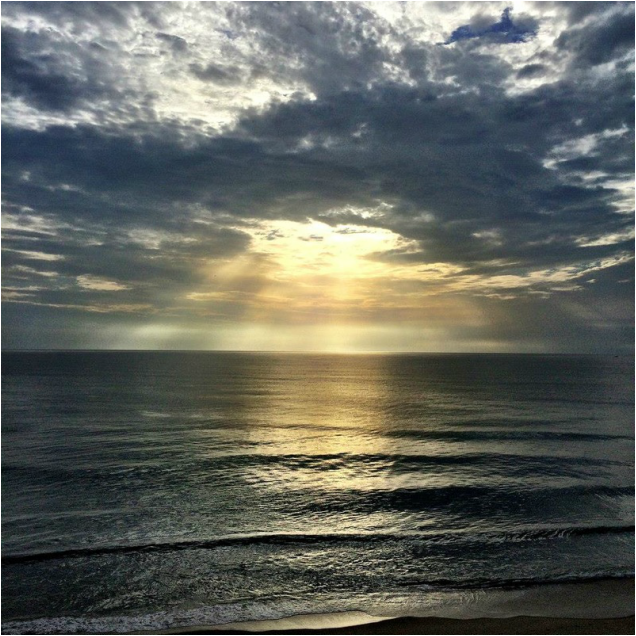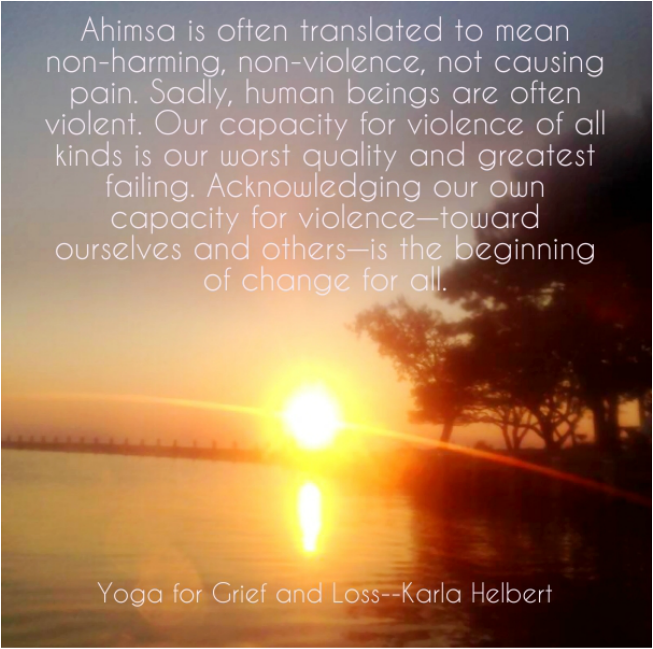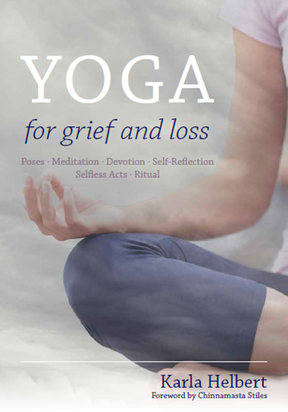- Meet Karla
- Free Guided Meditations
- Events & Workshops
- Get Your Free E-Book Breathing Lessons
- Work With Me
- Ketamine Assisted Psychotherapy (KAP)
- Reiki
- Tarot
- Chakras
- Yoga Nidra
- Mudra Practices to Support the Heart
- Frequently Asked Questions
- Just Breathe
- Altars and Shrines
- Tips & Articles
- Gift Certificates
- Press and News
- Blog: The Therapeutic Life
- The Mind in Grief
- Grounding
|
"Be soft. Do not let the world make you hard. Do not let pain make you hate. Do not let the bitterness steal your sweetness.Take pride that even though the rest of the world may disagree, you still believe the world to be a beautiful place." ~Kurt Vonnegut Summer, here in the Northern Hemisphere, is the season of abundance; of energy, of vitality, of growth. Forests, gardens and suburban lawns burst with life. Food sprouts from gardens and hangs from trees. The elements seem far kinder and welcoming to those who live out of doors, human and animal alike. Mother Nature gives Her gifts of nourishment. The Sun itself, at Its zenith during these summer months gives longer days, extra heat, and brings plentiful growth. The power of the Sun is immense. It is the primordial fire and source of life, it is gorgeous and infernal and is the element of transformation. The sun can also burn and consume and purify. In Summer our relationship to the Sun and all its qualities is much more immediate. In literature, myth, and the symbology of the Native American medicine wheel, Summer is a time of swift growth and change, of life and abundance; of soaring temperatures and often heated emotions and passions. Both love and anger are emotions of heat. Grief is also full of these. Summer brings light and warmth that can allow for more "good days," times when grief might feel lighter, less oppressive, due to the direct increase of sunlight on exposed skin, in our eyes, and thereby in our brains. The summer season may offer more time and greater opportunity for escape from the day-to-day of our regular schedules--and regular grief--more time and space to get away, to take a break, to bask in the healing qualities of Nature, to take a vacation from grief. Summer also often brings opportunity to be near water, which I recommend whenever possible. Water, the element of our changing and flowing emotions, can soothe blistered hearts and hot tears with its coolness and its gentle but insistent and powerful opposing force. It counteracts the heat of Fire. Summertime, like grief, is full of Fire and Water. Opposite forces working against and with the other, they vanquish each other and help us find balance. Balance during this Summer has been difficult. For many of us on deep, personal, individual levels, grieving our beloveds in so many ways; Summertime memories of when they were here on this physical plane are so painful. For others, Summertime memories that will never be, some that never were, are like daggers to our hearts. While it can bring respite, Summer also brings, as all the seasons do, its own reminders of what and who we will always be missing. Finding balance in this is part of finding our way through grief. Despite its lushness, Summer can be so awfully hard. In many ways, this Summer feels particularly hard. Finding balance as a people, as a nation here in the U.S., and as people sharing this Earth with billions of other humans has, of late, been a heartrending challenge. We are in a time of upheaval, of change, of revolution—of our spirits, our souls, our hearts. The future of our very planet and certainly of our continued existence as a human race is at stake. The violence, the pain, the suffering we are witnessing, and which so many of us are grieving, is not new. None of this is new, these things are only now being exposed, more than ever before. There has never been, in human history, so many means for so much exposure. This is a pivotal time, and many of us are experiencing grief on so many levels—private, personal , public, collective, communal, global. There is grief about the sheer amount of grief and a pervasive, insidious sense of helplessness and fear that can feel like an assault on mind, heart and psyche. There have been days this Summer when the heartbreak, pain and grief have been nearly overwhelming. I spent the day after the murders of Alton Sterling and Philando Castile off and on in tears, crying also for people I love who are going through their own personal tragedies, overwhelmed with fear and grief. At the same moment, I was trying really, really hard to be present for those who needed me to be here now. And then came Dallas, and before that had already come Orlando. And now Istanbul and Nice. I felt overwhelmed at the sheer amount of grief and pain and suffering that exists in this world. I realize that I cannot do everything. None among us can do everything. I had to figure out what it is that I can actually do. I realized that the best and most helpful thing in any given moment is to try to hold all that suffering, mine included, in a space of love. I acknowledge the suffering, my own and others, my fear and that of others, and still as Kurt says in the opening quote above, I try to remember to not let it make me hard, to not let it make me hate, to not let the bitterness steal the sweetness. And something I can always do is to first, do no harm. That is the number one consideration in my profession and it is also the first of Patanjali’s Yamas. Ahimsa. This Sanskrit word means "non-violence"--do no harm.Though it should not have been, this was in that moment, a revalation. Because of this, I have decided to begin a monthly series discussing each of the Yamas and Niyamas as they relate to grief and to life and to the pains we are as a people moving through. The Yamas are the first in the Eight Limbs of Yoga described by the ancient and brilliant Patanjali in The Yoga Sutras, the classical text of how to practice yoga, and also a pretty amazing guide on how get through this thing called life. It is reflective of teachings found in many spiritual paths. The gift of Patanjali, though, is that his writings only point the way. He gives us the threads—the literal meaning of the Sanskrit word sutra—and with those threads allows us the opportunity to bring our own direct knowledge and experience to the process and product of the weaving, which belongs only to us. The first of his famous Eight Limbs is the Yamas, five conditions of behavior, things we should refrain from doing in order to live a harmonious and ethical life. Ahimsa, non-violence, do no harm is the first. The order in which the Eight Limbs are written is no accident. First, we must do no harm. This is the foundation. Ahimsa is often translated to mean non-harming, non-violence.
Not causing pain. Sadly, humans beings are often violent. Our capacity for violence of all kinds is our worst quality and greatest failing. Acknowledging our own capacity for violence—toward ourselves and others—is the beginning of change for all. The famed master yogi B.K.S. Iyengar said in his book The Tree of Yoga, "Why do you think of the violence of the world? Why don't you think of the violence in you?" Underlying violence is almost always fear. We are regularly filled with fears, of the unknown, of others, of change. To avoid feeling our own pain, or being in pain, we often cause pain to others as a form of protection against perceived vulnerabilities. When our security is threatened on any level, our inner capacity for violence is stimulated. When any part of what we perceive as our security is at risk, we immediately begin enacting ways to stop the threat. This may take place internally or it can be an all-out fight, but it is always a form of violence. Any time we experience any amount of hostility or antagonism, inwardly or outwardly, there is violence—even if but a seed. The danger is that when tended, seeds grow. The experience of grief can bring with it many feelings and experiences rife with violence. Whether our loved one died violently or not, the result feels like a violation. We feel that violence has been done to us and to our beloved. The state of the world may intensify feelings of violation, violence and fear. We may want to lash out, to harm, to destroy. Anger or violent thoughts may fill our minds. To feel such complete powerlessness in the face of utter destruction is a pain that ultimately cannot properly be described with mere words. Often when people are filled with such despair, anger can result. We may withdraw and direct violence toward ourselves in the form of neglect, or outwardly in harmful behaviors that can damage body, mind, and spirit--our own as well as others'. Violence, inward and outward, is often a part of grief—and part of the human condition. We live in a world where anger is often more acceptable than sadness. Anger itself is not the problem, violence is the problem. Anger is a signal that there is something wrong, and when your beloved is dead, when loss has destroyed life as you knew it, there is something very wrong. When loss upon loss builds, something is very wrong. Recognizing that the feelings are important and being aware of how we direct the energy of anger and fear make all the difference. Learning to replace violent and destructive feelings and tendencies with those which are loving and constructive can be difficult but it is possible. Taking good care of yourself is essential in grief and in managing feelings of anger and fear—the seeds of violence. Yet, most of us have extreme difficulty with self-care in grief. Sometimes this is because we are so overwhelmed by the pain that we simply do not have the energy to act in a caretaking way for ourselves. Other times we may feel emotionally unable to engage in any act of love or care toward ourselves. We may feel undeserving of care or love. Because we are already in so much pain, because we may feel we do not deserve to have anything other than pain, that there can never be anything other than pain in the future in seeking to avoid the pain of grief, we often do not care about pain we may cause ourselves—no pain can be greater than the pain of being without our beloveds. Awareness is the beginning of change. Can you observe without judgment any violence that has occurred or may be occurring inside you? Can you peel back the layers of that to see what lies beneath? Is there fear, is there anger? Where are those directed? Do you regularly perpetuate thoughts or engage in behaviors that cause harm to your body, mind, psyche, or spirit? The first step to dissolving the root of violence is recognizing that it has taken root. Is there a seed that may grow? Observe with love and compassion and without judgment any violence inside you and how it manifests. Spend some time thinking, with as much compassion as possible, about ways both large and small that you do harm to yourself. This in itself is a form of self-care. You do not have to force yourself to change your thoughts or actions, but rather attempt to become lovingly aware. Slowly and gently you can add small ways of caring for yourself. Those small ways may turn into greater acts of self-care. Self-care is physical—taking care of your body with good food, sleep, exercise, massage, movement, sunshine, and nutrition. It is mental—self-help books, music, art, creativity, seeking and finding a well-trained counselor who understands grief and bereavement,. It is spiritual—in meditation, nature, study of spiritual books, chant, ritual, prayer, contemplation, speaking to a trusted religious leader. Self-care is also found in reaching out to your community—to friends and family, neighbors, co-workers, it is finding and going to a support group, to on-line communities. Each of these can be done with small steps forward. All of these are self-care and with awareness and tenderness toward yourself, can grow. The above passage is an excerpt from Karla's recently released book Yoga for Grief and Loss: Poses, Meditation, Devotion, Self-Reflection, Selfless Acts, Ritual
1 Comment
|
AuthorKarla Helbert, LPC Archives
January 2019
Categories
All
|
© Karla Helbert, MS, LPC All Rights Reserved
- Meet Karla
- Free Guided Meditations
- Events & Workshops
- Get Your Free E-Book Breathing Lessons
- Work With Me
- Ketamine Assisted Psychotherapy (KAP)
- Reiki
- Tarot
- Chakras
- Yoga Nidra
- Mudra Practices to Support the Heart
- Frequently Asked Questions
- Just Breathe
- Altars and Shrines
- Tips & Articles
- Gift Certificates
- Press and News
- Blog: The Therapeutic Life
- The Mind in Grief
- Grounding



 RSS Feed
RSS Feed